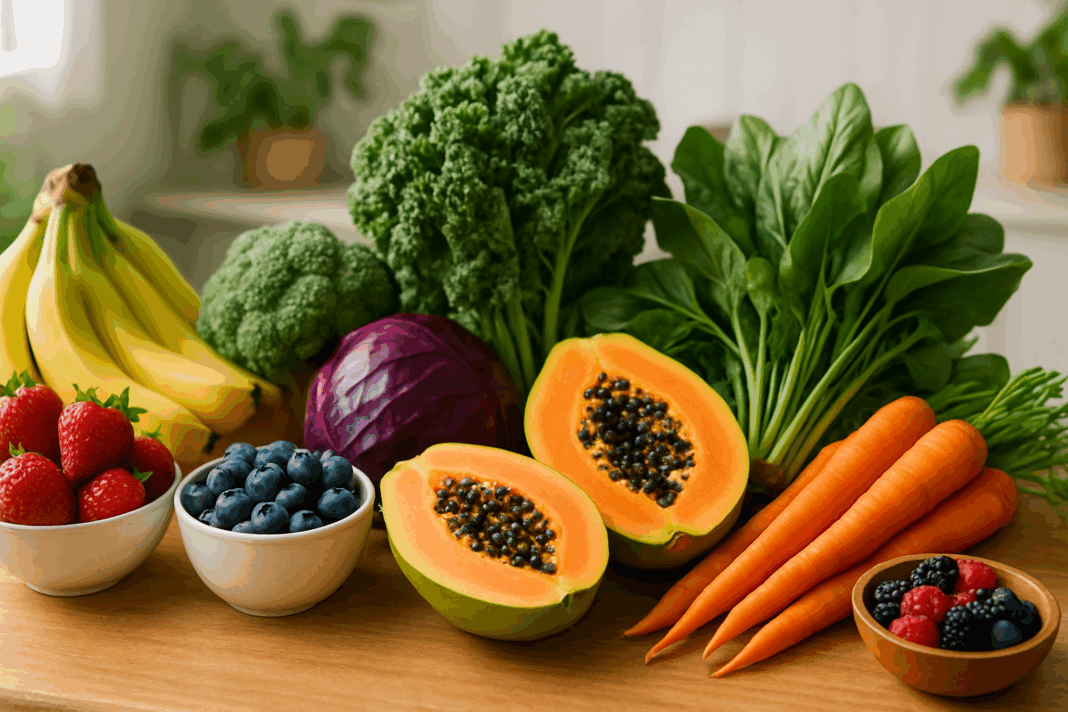In today’s wellness-centered world, understanding how nutrition supports our digestive system has become a topic of vital interest. For individuals exploring ways to enhance their digestive health naturally, incorporating the best fruits and vegetables for gut health is both a practical and scientifically supported strategy. As research on the gut microbiome expands, we increasingly recognize the powerful role of plant-based foods in nurturing a balanced, thriving digestive ecosystem. This comprehensive guide explores the science behind gut health, the role of dietary fiber, the impact of specific fruits and vegetables, and how to make informed, sustainable dietary choices that promote optimal digestion.
You may also like: The Ultimate Guide to Gut Healthy Meals: Best Meals for Gut Health and Nourishing Recipes You’ll Love
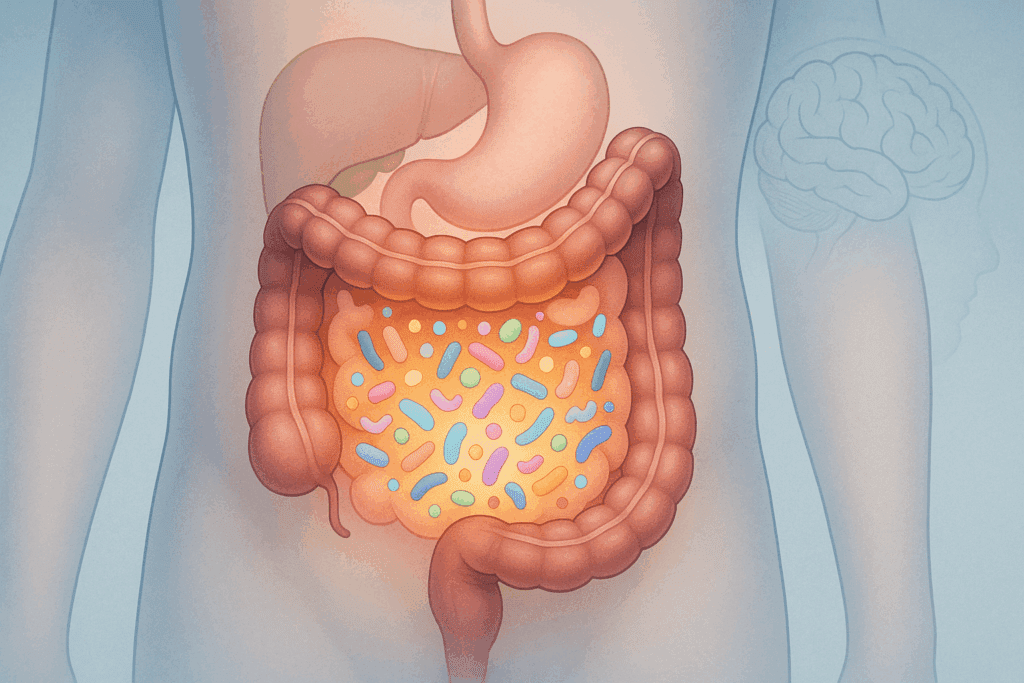
Understanding Gut Health: Why It Matters
Gut health refers to the balance and function of bacteria and other microorganisms living in the digestive tract, collectively known as the gut microbiota. These microorganisms perform essential tasks, including synthesizing vitamins, breaking down complex carbohydrates, supporting immune function, and communicating with the brain via the gut-brain axis. A diverse and balanced microbiome is widely regarded as a cornerstone of overall health, while disruptions—known as dysbiosis—can contribute to a host of conditions, ranging from irritable bowel syndrome (IBS) and leaky gut to mental health concerns such as anxiety and depression.
Maintaining gut health depends largely on what we consume. While probiotics and fermented foods often dominate the conversation, prebiotics—non-digestible plant fibers that serve as food for beneficial bacteria—are equally vital. The body does not digest these fibers, but the gut microbiota metabolizes them, producing short-chain fatty acids that nourish colon cells and maintain gut barrier integrity. In this context, the inclusion of fruits that are good for digestion and rich in prebiotic fiber becomes a foundational pillar of digestive wellness.
The Science Behind Fiber: Soluble vs. Insoluble
To understand the role of fruits and vegetables in digestive health, it’s crucial to grasp the distinction between soluble and insoluble fiber. Soluble fiber dissolves in water, forming a gel-like substance that slows digestion and stabilizes blood sugar levels. This type of fiber is especially helpful for softening stool and promoting regularity. Common sources include apples, bananas, berries, carrots, and oats.
In contrast, insoluble fiber adds bulk to stool and promotes its movement through the digestive tract, which can help prevent constipation and support detoxification. This variety is found in foods like leafy greens, cucumbers, bell peppers, and whole grains. Ideally, a balanced diet will incorporate both types of fiber to support a diverse and healthy gut microbiome.
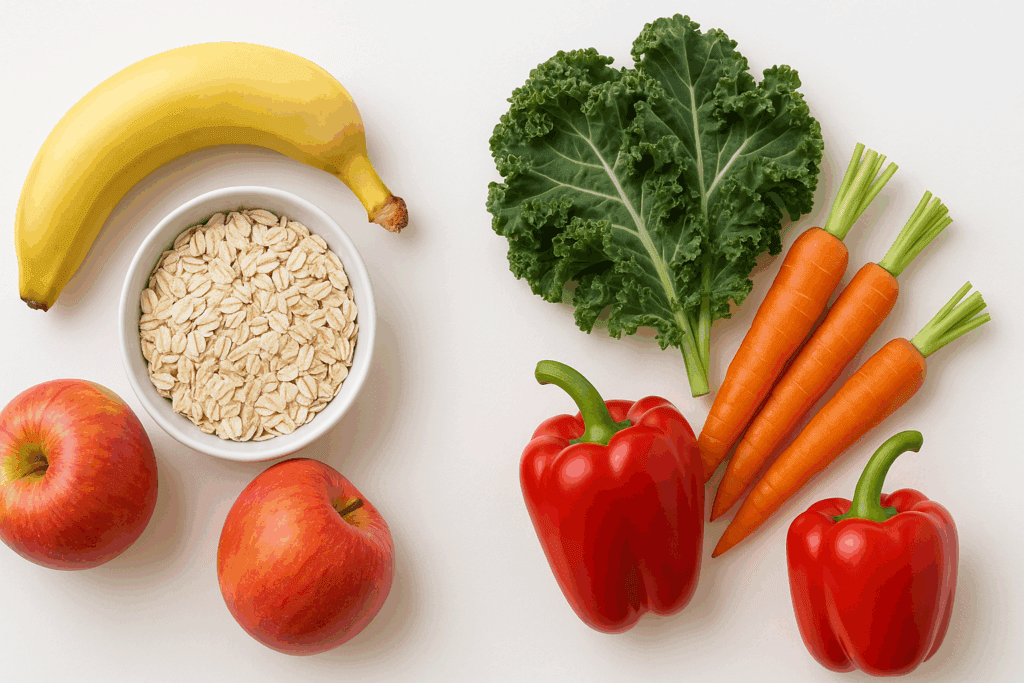
Best Fruits and Vegetables for Gut Health: A Functional Overview
When selecting the best fruits and vegetables for gut health, variety and nutrient density are paramount. Each fruit and vegetable offers a unique blend of vitamins, minerals, antioxidants, and fiber types, all of which contribute to microbial diversity and digestive efficiency. For example, bananas contain resistant starch, a type of prebiotic fiber, while leafy greens like kale and spinach offer magnesium and folate that support enzymatic functions in the gut.
Fruits such as kiwis and papayas are rich in natural digestive enzymes like actinidin and papain, respectively, which aid protein breakdown and ease post-meal bloating. Meanwhile, vegetables like asparagus, garlic, and onions are excellent sources of inulin, a well-studied prebiotic compound known to enhance bifidobacteria populations in the colon. Incorporating a rotating selection of these produce items ensures a robust intake of fiber and phytochemicals, fueling the gut microbiome in diverse and complementary ways.
Spotlight on the Best Fruit for Gut Health: Bananas, Berries, and Beyond
Identifying the best fruit for gut health depends on specific digestive needs, but several fruits consistently earn high marks in nutritional science. Bananas, particularly when underripe, are rich in resistant starch and pectin, both of which act as prebiotics. They are also soothing to the gastrointestinal lining, making them ideal for individuals with sensitive stomachs or recovering from gastrointestinal illness.
Berries—including blueberries, raspberries, and blackberries—offer soluble fiber and a wealth of polyphenols, which have been shown to increase beneficial gut bacteria and reduce inflammation. Apples contain both soluble fiber (pectin) and flavonoids that support microbial balance. Kiwis, less commonly cited but incredibly effective, contain both fiber and natural digestive enzymes. Regular consumption of these fruits can lead to improvements in stool frequency, reduction in bloating, and better overall gut function.
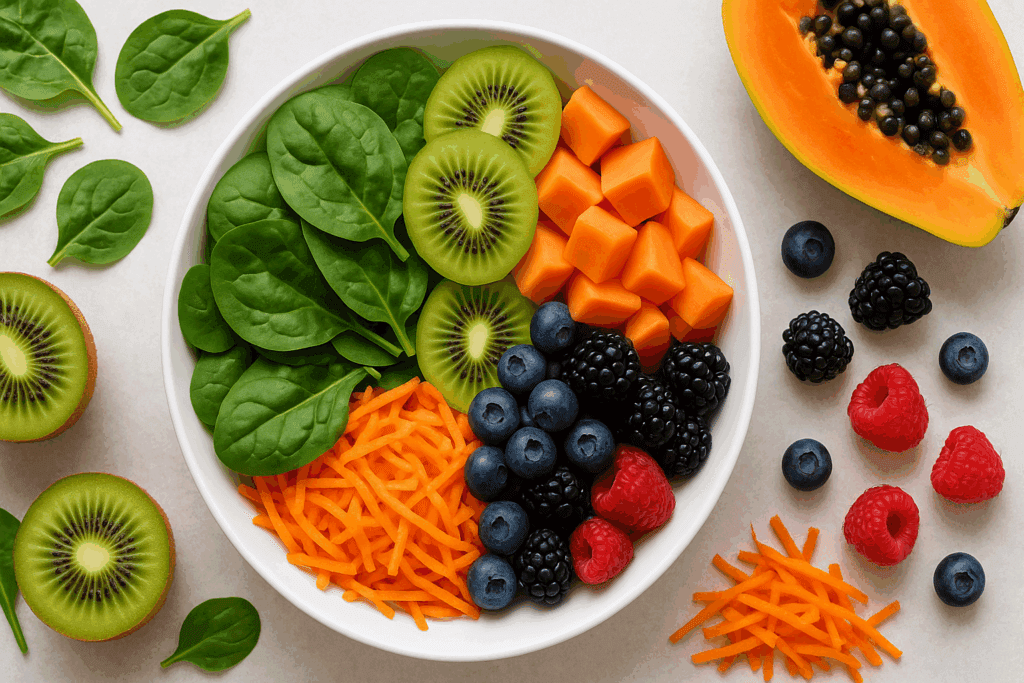
Best Vegetables for Gut Health: Leafy Greens, Cruciferous Choices, and Root Power
Vegetables play a foundational role in promoting gut health, offering a dense source of fiber, hydration, and phytochemicals. Among the best vegetables for gut health, leafy greens such as spinach, kale, and Swiss chard stand out for their magnesium content, which supports muscle contractions in the intestinal tract. These vegetables also provide folate, a B-vitamin essential for cell repair and growth in the gut lining.
Cruciferous vegetables like broccoli, cauliflower, and Brussels sprouts contain glucosinolates, which are broken down into bioactive compounds that support liver detoxification and modulate gut bacteria. Though they may cause gas in sensitive individuals, introducing them gradually can allow the microbiota to adapt. Root vegetables such as sweet potatoes, carrots, and beets offer both soluble and insoluble fiber, along with antioxidant compounds that nourish gut epithelial cells and combat oxidative stress. Consistently including a variety of these vegetables supports the structural integrity of the gut and the richness of its microbial communities.
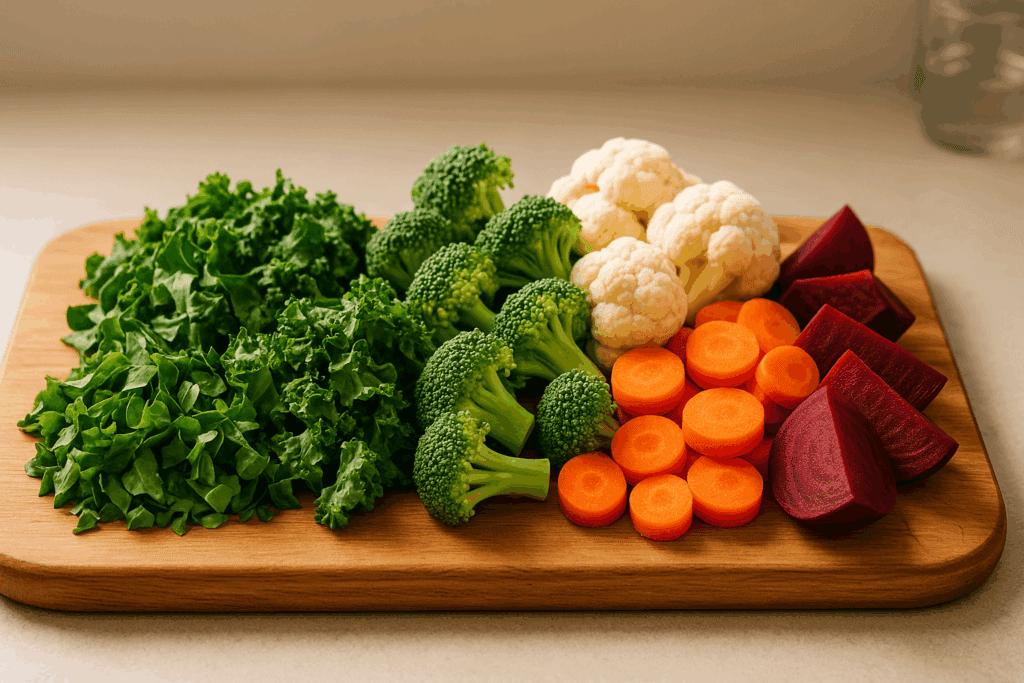
How Fruits for Gut Health Influence Microbial Diversity
Consuming fruits for gut health does more than support digestion in the traditional sense; it actively shapes the microbial ecosystem within the gut. Polyphenols in fruits act as antioxidants and fuel for specific bacterial strains. For instance, the polyphenols in grapes and pomegranates have been associated with increases in Lactobacillus and Bifidobacterium species, both considered beneficial for digestion and immune health.
Moreover, the water content in fruits like watermelon, oranges, and pineapple contributes to stool softness and regular bowel movements, which are essential for detoxification and microbial balance. The synergy between water, fiber, and phytonutrients creates an internal environment where beneficial bacteria can thrive while opportunistic pathogens are kept in check. When integrated into a daily dietary routine, fruits for gut health provide a flavorful and effective means of maintaining digestive balance and resilience.
Exploring the Best Fruits and Vegetables for Gut Health in Holistic Nutrition
From a holistic standpoint, food is more than fuel—it is medicine. This perspective aligns well with the growing body of evidence supporting the inclusion of the best fruits and vegetables for gut health in integrative and functional medicine protocols. By treating food as a therapeutic tool, practitioners can address root causes of digestive distress, such as dysbiosis, inflammation, and nutrient deficiencies.
For example, individuals struggling with IBS may benefit from soluble-fiber-rich fruits like papaya and applesauce, which are easier on the digestive tract than high-FODMAP choices. Those with sluggish digestion may find relief in lightly steamed vegetables paired with lemon juice and ginger, both of which stimulate digestive enzyme production. In this way, the combination of food quality, preparation method, and individualized needs creates a comprehensive approach to digestive wellness that is both evidence-based and personalized.
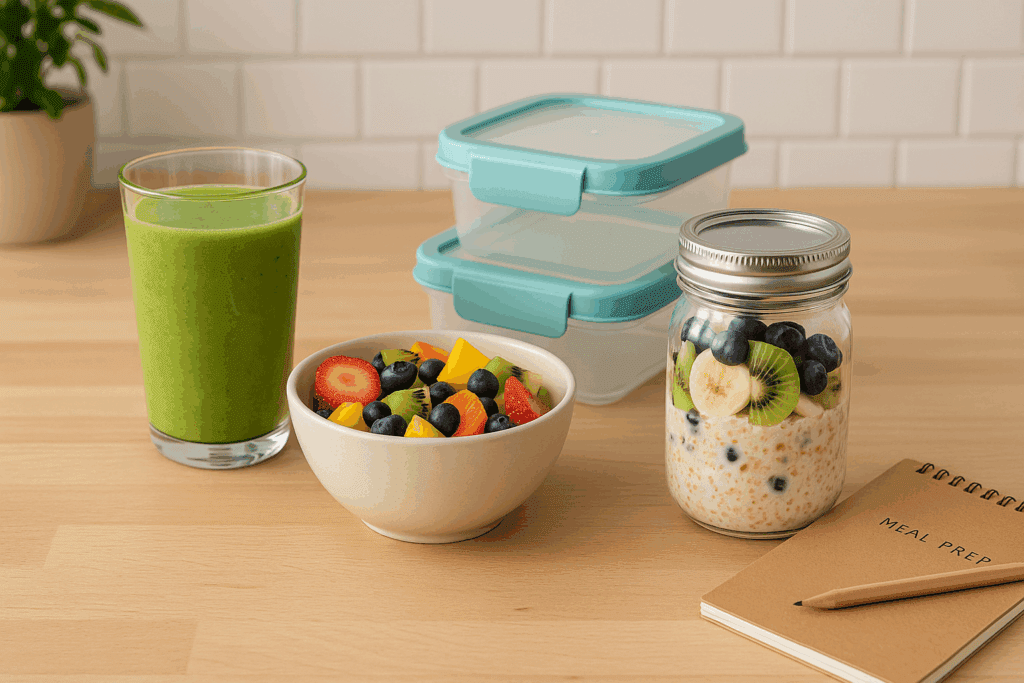
How to Incorporate More Fruits That Are Good for Digestion Into Daily Life
Although the benefits of fruits that are good for digestion are well documented, integrating them into a busy lifestyle can pose challenges. However, small, consistent changes can yield significant results over time. Starting the day with a smoothie containing banana, berries, and spinach provides a rich blend of fiber, antioxidants, and hydration. Midday snacks like apple slices with almond butter or kiwi wedges can offer satisfying, digestion-friendly alternatives to processed options.
Meal planning and batch preparation can also facilitate the inclusion of gut-supportive produce. Roasted vegetable medleys, fruit salads, and soups made with root vegetables and leafy greens can be prepared in advance and enjoyed throughout the week. Incorporating fermented condiments such as sauerkraut alongside vegetable-rich meals introduces probiotics to further complement prebiotic fibers. With intention and planning, supporting digestion through diet becomes an effortless and enjoyable endeavor.
The Synergistic Power of Whole Plant Foods
One of the most important concepts in gut health nutrition is synergy—the idea that the combined effect of whole plant foods is greater than the sum of their parts. For example, consuming an orange with its pith intact provides not only vitamin C but also flavonoids and fiber that work together to enhance nutrient absorption and support the gut lining. Similarly, pairing a prebiotic food like garlic with a probiotic source like kimchi can create a dynamic duo that boosts microbial diversity more effectively than either food alone.
This principle underscores the value of consuming whole, minimally processed fruits and vegetables. Juices and supplements, while occasionally helpful, often lack the fiber and structural integrity needed for lasting digestive benefits. By focusing on whole plant foods in their natural state, individuals can tap into nature’s inherent intelligence and offer their bodies a complete package of nutrients designed to nourish and heal.

Cultivating a Gut-Friendly Lifestyle Beyond the Plate
While the best fruits and vegetables for gut health form a critical foundation, other lifestyle factors play a significant role in shaping digestive function. Stress management is perhaps the most underrated element of gut health, given the intimate connection between the brain and the gut. Practices such as meditation, deep breathing, and yoga can reduce cortisol levels, improving both motility and microbial diversity.
Sleep quality also influences gut bacteria, with research showing that disrupted circadian rhythms can alter microbial composition and compromise digestion. Prioritizing restful sleep, along with moderate physical activity, further enhances digestive function and nutrient assimilation. Together, these lifestyle components form a holistic framework that empowers individuals to achieve gut health from multiple angles.
Frequently Asked Questions About the Best Fruits and Vegetables for Gut Health
What Are Some Underrated Fruits That Can Support Gut Health Effectively?
While bananas and berries often dominate the spotlight, there are several lesser-known fruits that offer impressive digestive benefits. Guava, for example, contains both soluble and insoluble fiber and is rich in vitamin C and lycopene, promoting regularity and microbial balance. Persimmons, a fiber-dense autumn fruit, are excellent for those struggling with irregular bowel movements. Dragon fruit is another emerging favorite due to its unique prebiotic fiber content that encourages the growth of lactobacilli and bifidobacteria. These underrated choices add both nutritional diversity and microbial support to a gut-focused diet.
How Do Seasonal Changes Affect the Best Fruits and Vegetables for Gut Health?
The availability of fresh produce changes with the seasons, influencing gut health strategies throughout the year. During spring and summer, fruits like watermelon, peaches, and apricots can hydrate the digestive tract while offering soluble fiber and antioxidants. Autumn brings root vegetables like squash and sweet potatoes, ideal for maintaining digestive warmth and bulk. Winter greens such as kale and collards provide nutrients essential for mucosal lining integrity during colder months. Eating seasonally ensures microbial diversity and introduces a wider array of gut-supportive compounds throughout the year.
Can Cooking Methods Change the Effectiveness of Fruits and Vegetables for Gut Health?
Yes, preparation methods significantly affect the digestive impact of plant foods. Steaming vegetables like broccoli and cauliflower makes their fiber more digestible while preserving glucosinolates that support detoxification. Lightly poaching or baking fruits such as pears and apples can make them easier on sensitive stomachs without diminishing their prebiotic potential. On the other hand, deep-frying or over-boiling may destroy beneficial nutrients and fiber. By choosing gentler cooking techniques, individuals can optimize the benefits of the best vegetables for gut health while minimizing digestive distress.
Are There Specific Food Pairings That Enhance the Digestive Effects of Fruits for Gut Health?
Pairing fruits with complementary foods can enhance their digestive impact. For example, eating pineapple with yogurt provides a synergistic blend of bromelain (a digestive enzyme) and probiotics, which together enhance protein digestion and microbial diversity. Combining apples with walnuts offers fiber along with omega-3 fatty acids, which reduce inflammation in the gut. Citrus fruits paired with leafy greens improve iron absorption, supporting healthy red blood cell production and overall energy. Strategic pairings allow for better nutrient bioavailability and maximize the functional value of fruits for gut health.
How Can You Tell If a Fruit or Vegetable Is Improving Your Digestion?
Physical markers like improved stool consistency, reduced bloating, and more regular bowel movements can indicate positive changes. Mentally, users often report enhanced clarity and mood—a reflection of the gut-brain connection. Over time, foods that support digestion may reduce reliance on antacids or laxatives. Lab markers like decreased inflammation and improved microbial diversity in stool samples can also confirm efficacy. Ultimately, consistent improvements in daily comfort, energy levels, and digestive regularity serve as strong signs that your chosen fruits and vegetables are positively influencing gut health.
Best Fruits and Vegetables for Gut Health in a Plant-Based Lifestyle
Adopting a plant-based lifestyle offers a natural foundation for gut health due to its high fiber and antioxidant content. In this context, the best fruits and vegetables for gut health include fiber-rich legumes, cruciferous vegetables, and tropical fruits like mango and papaya that offer digestive enzymes. Sea vegetables such as wakame and dulse add prebiotic polysaccharides and minerals often missing from land-grown produce. Fermented vegetables like kimchi and fruit-based chutneys can also amplify microbial support. Combining whole plant foods with naturally fermented options creates a robust framework for sustainable digestive wellness.
What Psychological Benefits Are Linked to Eating Fruits That Are Good for Digestion?
Emerging studies in psychogastroenterology have identified strong links between gut health and mental wellness. Fruits that are good for digestion, such as blueberries and kiwi, supply not only fiber but also neuroprotective compounds like flavonoids that may influence mood. A well-functioning gut enhances serotonin production, the majority of which occurs in the intestines. People who regularly consume digestion-supportive fruits often experience improved mood stability, better stress resilience, and reduced symptoms of anxiety. This bi-directional gut-brain connection underscores the holistic benefits of dietary choices.
Can You Overdo It with the Best Fruit for Gut Health?
Even the best fruit for gut health should be consumed mindfully, especially for individuals with fructose intolerance or small intestinal bacterial overgrowth (SIBO). Excessive intake of high-FODMAP fruits like apples and cherries can cause gas and bloating in sensitive individuals. Moderation is key; spacing out servings and rotating fruit types prevents overexposure to any one fermentable sugar. Listening to one’s body and potentially consulting a dietitian can ensure that benefits are optimized without unintended discomfort. Balancing variety, quantity, and personal tolerance remains essential.
What Role Do Soil and Farming Practices Play in the Quality of Fruits for Gut Health?
The nutritional and microbial integrity of produce is directly influenced by soil quality and agricultural methods. Organic farming tends to maintain higher microbial biodiversity, which may enrich the skin of fruits with beneficial compounds and bacteria. Conventionally grown produce may carry pesticide residues that can impact gut flora negatively. Local, regenerative farming methods often yield fruits for gut health that are fresher, more diverse in their phytochemical profile, and less contaminated. Sourcing mindfully grown produce not only supports the gut but also promotes environmental sustainability.
Choosing the Best Vegetables for Gut Health Based on Your Body’s Needs
Individual responses to vegetables can vary widely depending on one’s microbiome composition, medical history, and digestive strength. While the best vegetables for gut health generally include leafy greens, root vegetables, and cruciferous plants, personalization enhances results. Someone with IBS may do better with cooked carrots over raw kale, while another with sluggish digestion might benefit more from bitter greens like dandelion. Tracking reactions through a food journal and working with a nutrition expert can refine your vegetable choices to match your unique biology. Personalized nutrition is the future of functional gut care.
Reflecting on the Best Fruits and Vegetables for Gut Health and Better Digestion
Ultimately, the journey to better digestion and vibrant health begins with consistent, informed dietary choices. By emphasizing the best fruits and vegetables for gut health, individuals can proactively shape their microbiome, reduce inflammation, and support the intricate processes that sustain human life. From the resistant starch in bananas to the glucosinolates in cruciferous vegetables, each plant offers unique compounds that contribute to digestive harmony.
Making these foods a regular part of one’s diet not only improves physical comfort but also enhances energy levels, mental clarity, and immune resilience. The synergy between fruits, vegetables, lifestyle habits, and mindful eating creates a powerful ecosystem within the body, allowing it to heal, renew, and thrive. As we continue to explore the profound connection between diet and digestion, one truth becomes abundantly clear: investing in gut health through whole, nutrient-dense plant foods is one of the most effective and empowering decisions we can make for our long-term wellness.
Further Reading:
The Best Fruit for Your Gut Health, According to a Gastroenterologist
The Top 10 Fruits That Are Good for Digestion and Wellness
16 High-Fiber Fruits That Can Boost Your Gut and Overall Health

